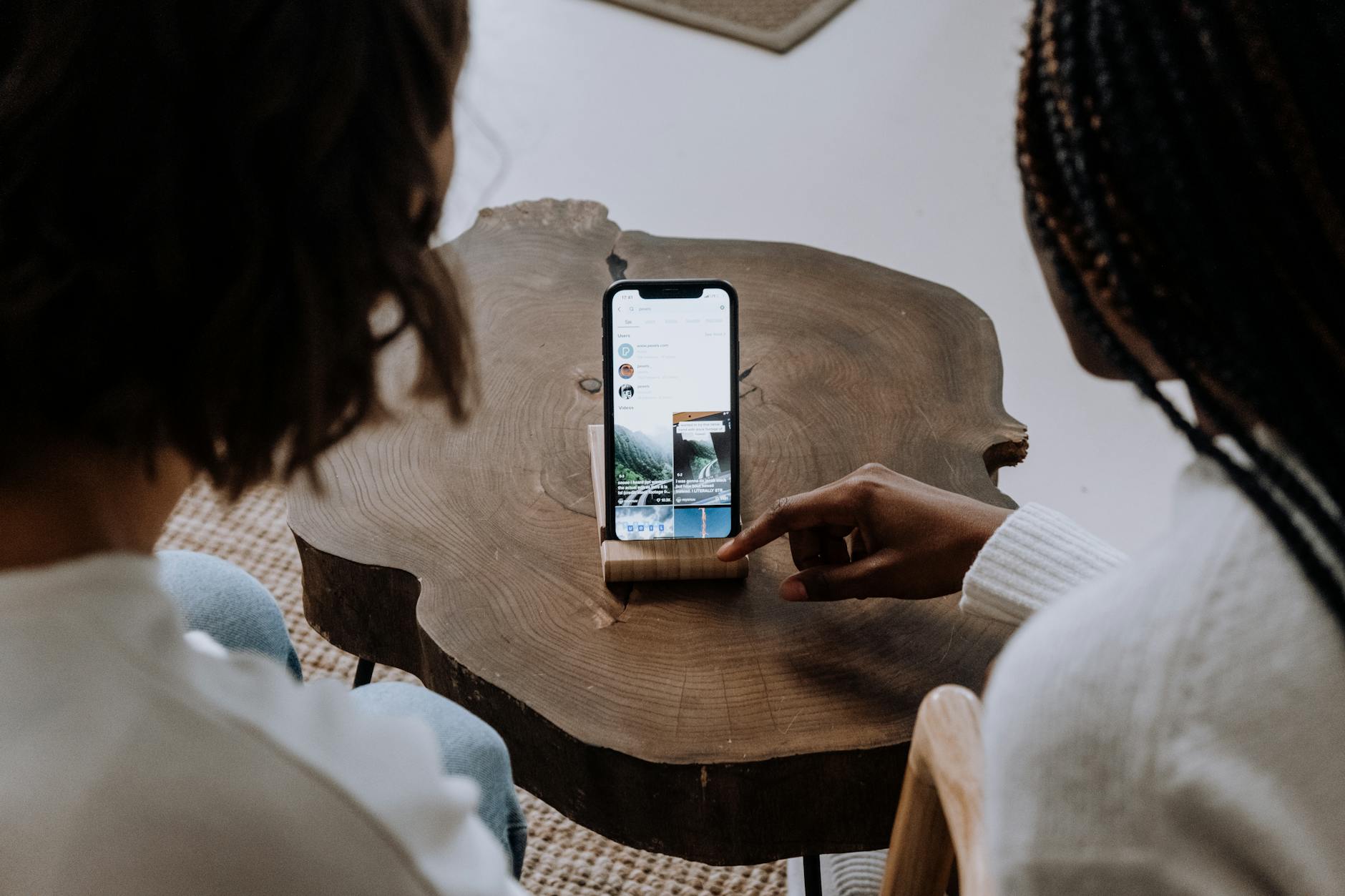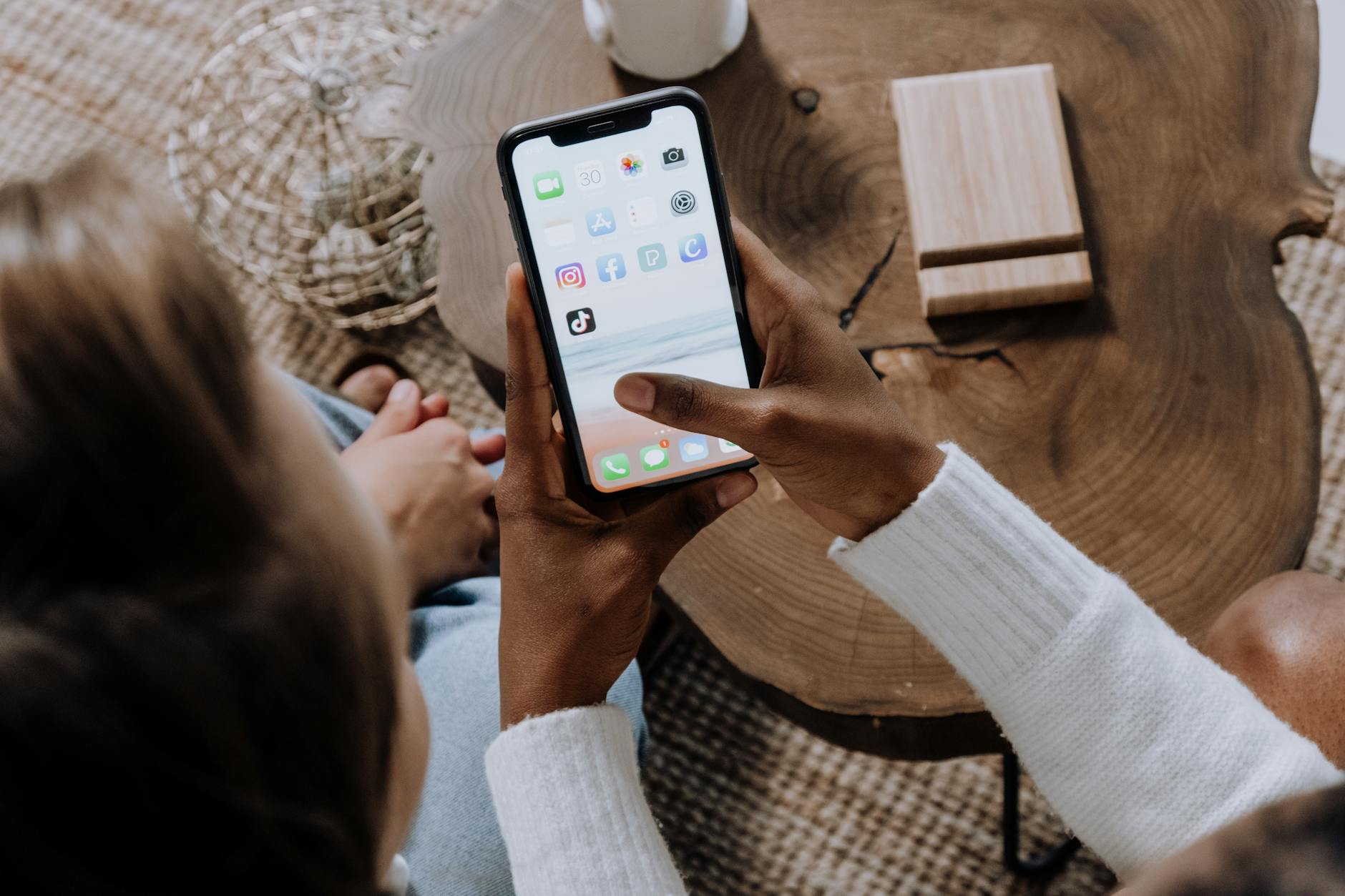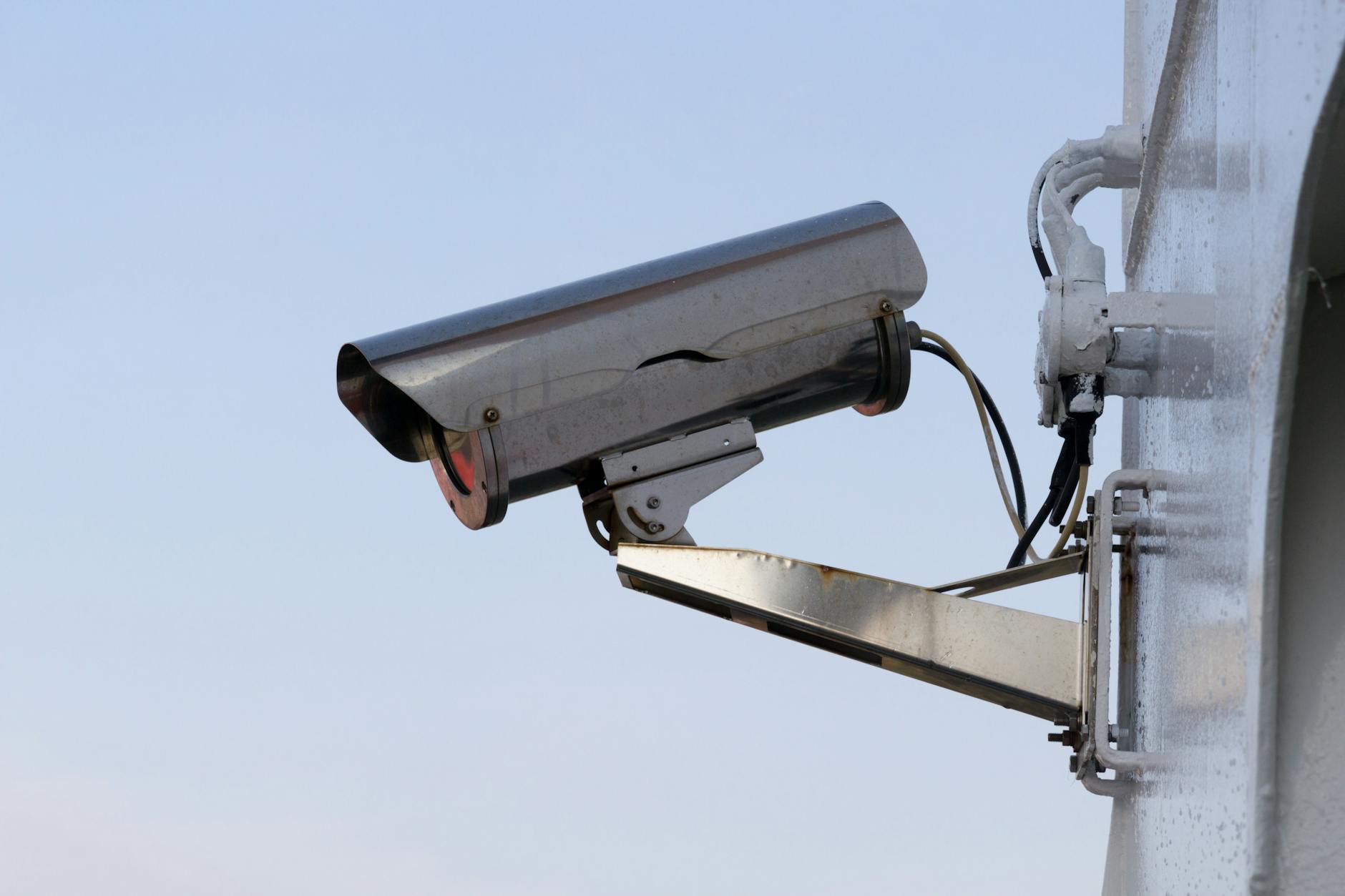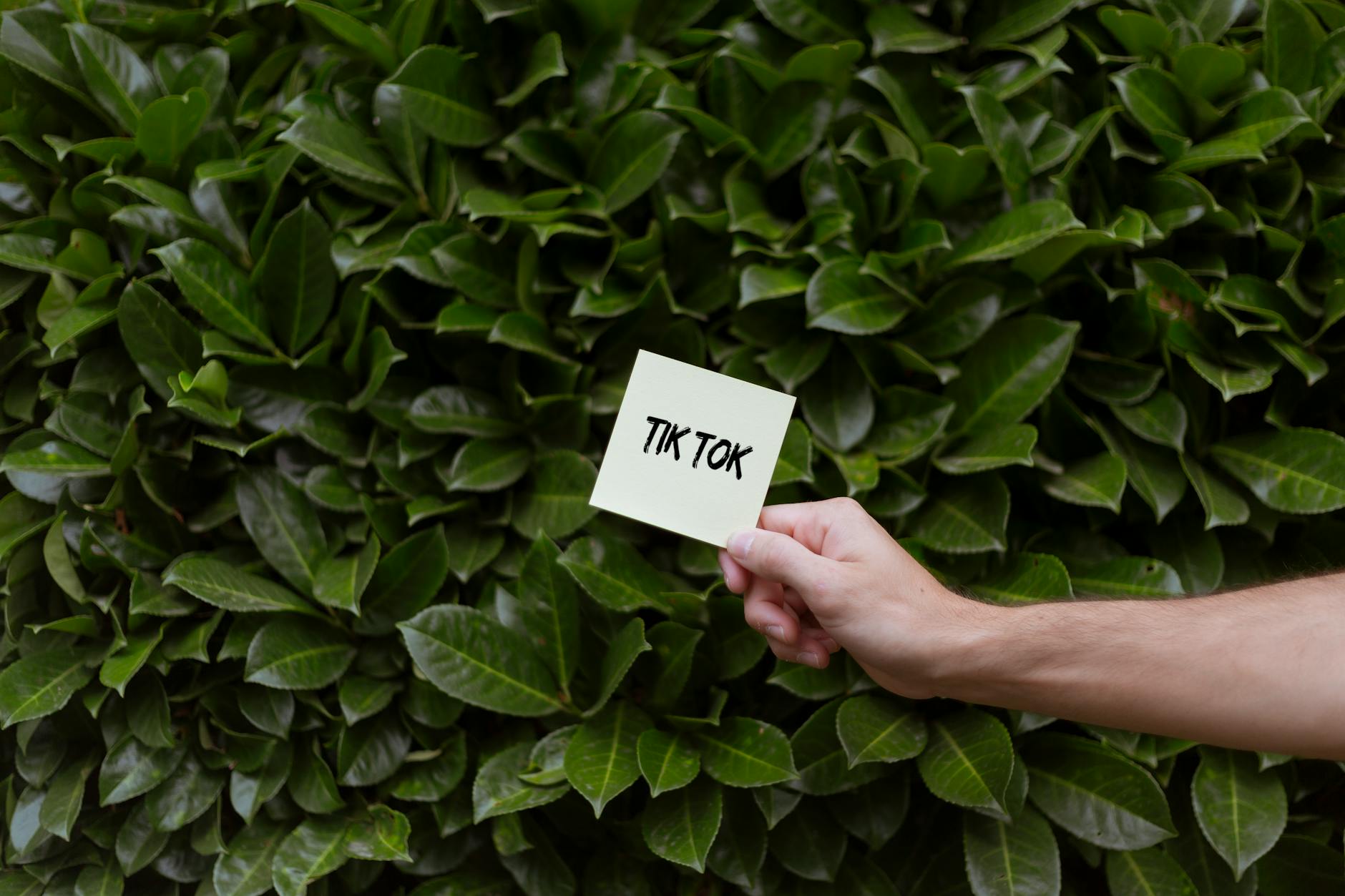TikTok's US Comeback: The Surprising New Owner Revealed

TikTok's fate hangs in the balance as the clock ticks on its Chinese ownership. 🕰️ The app that took the world by storm is now at the center of a high-stakes bidding war, with some of the biggest names in tech and entertainment vying for control. From YouTube sensation MrBeast to billionaire Elon Musk, the list of potential buyers reads like a who's who of digital influencers and moguls. But who will emerge victorious in this surprising twist to TikTok's U.S. comeback story?
As national security concerns and regulatory pressures mount, TikTok's parent company ByteDance faces a crucial decision. With a $50 billion price tag and the future of social media potentially at stake, the race to acquire TikTok has captivated both Wall Street and Main Street. Will it be the innovative vision of a content creator, the deep pockets of a tech giant, or an unexpected dark horse that ultimately wins the day?
Join us as we unravel the complex web of TikTok's rise to global dominance, the challenges that threaten its future, and the high-profile figures expressing interest in this digital goldmine. We'll explore the proposed ownership structures, potential implications of the sale, and what it all means for the millions of users who call TikTok home. 🏠📱 Get ready for a deep dive into the most talked-about tech story of the year!
TikTok's Rise to Global Dominance

A. Rapid growth and user engagement statistics
TikTok's rise to global dominance has been nothing short of meteoric. Since its international launch in September 2017, the platform has experienced exponential growth, amassing an impressive 1.04 billion monthly active users globally by May 2024. In the United States alone, TikTok boasts 170 million users, a significant increase from 150 million in early 2023.
The app's popularity is evident in its download statistics:
-
733 million downloads in 2023
-
137 million downloads in Q1 2024 alone
-
Over 4 billion total downloads since launch
TikTok's user engagement is equally impressive:
-
Global users spend an average of 95 minutes per day on the app
-
US users dedicate 53.8 minutes daily to TikTok
-
It ranks as the 5th most popular social network worldwide
| Year | Monthly Active Users |
|---|---|
| 2018 | 55 million |
| 2021 | Over 1 billion |
| 2024 | 1.04 billion |
B. Impact on cultural trends and content creation
TikTok has become a powerhouse for shaping cultural trends and revolutionizing content creation. The platform's influence is particularly strong among younger demographics, with 55% of weekly active users in the US aged 18-34. This concentration of younger users has made TikTok a breeding ground for viral challenges, dance trends, and meme creation.
Content creators on TikTok have found unprecedented success, with top accounts amassing millions of followers. For instance, Khabane Lame leads the pack with an astounding 162.6 million followers, showcasing the platform's potential for rapid fame and influence.
C. Sophisticated recommendation algorithms
At the heart of TikTok's success lies its sophisticated recommendation algorithm. This AI-driven system personalizes content for each user, creating a highly engaging and addictive user experience. The algorithm's effectiveness is reflected in the platform's high user retention rates and the substantial time users spend on the app daily.
The recommendation system considers various factors, including:
-
User interactions (likes, comments, shares)
-
Video information (captions, sounds, hashtags)
-
Device and account settings
This algorithmic approach has not only kept users engaged but has also democratized content creation, allowing unknown creators to gain viral fame overnight.
With TikTok's impressive growth and impact on global social media trends, it's important to consider the challenges and controversies that have accompanied its rise. In the next section, we'll explore the various issues that have surrounded TikTok, including privacy concerns and geopolitical tensions.
Challenges and Controversies Surrounding TikTok

Now that we've explored TikTok's meteoric rise to global dominance, let's delve into the challenges and controversies that have plagued the platform since its international launch in 2017.
A. Privacy concerns and data security issues
TikTok's journey has been marred by significant privacy and data security concerns. In February 2019, the Federal Trade Commission (FTC) imposed a $5.7 million fine on the platform for collecting information from minors without parental consent. This fine came with a mandate to implement a "kids only" mode, highlighting the app's struggle with protecting younger users.
The controversy escalated when reports emerged about TikTok's data tracking practices and potential access by Chinese authorities. This led to a series of actions by U.S. officials:
-
August 2020: Former President Trump issued orders to ban TikTok unless ByteDance divested its U.S. operations
-
June 2021: President Biden revoked Trump's ban but initiated a new investigation
-
December 2022: U.S. government banned TikTok on federal devices
B. Mental health and inappropriate content worries
While not explicitly detailed in the reference content, concerns about mental health impacts and inappropriate content have been part of the broader discussion surrounding TikTok. The app's addictive nature and its potential effects on users, particularly younger audiences, have been subjects of debate among lawmakers and health professionals.
C. Governmental scrutiny and potential bans
TikTok has faced intense governmental scrutiny, leading to various bans and restrictions:
| Date | Action |
|---|---|
| August 2020 | Trump administration's attempt to force divestment |
| 2020-2024 | State and local measures to restrict TikTok |
| March 2024 | U.S. House passes bill mandating ByteDance to sell TikTok |
| April 2024 | Senate incorporates TikTok provisions into foreign aid package |
| January 19, 2025 | Nationwide ban in the United States |
The Protecting Americans from Foreign Adversary Controlled Applications Act (PAFACA) mandated a complete ban unless ByteDance divested its ownership. This law was upheld by the Supreme Court, citing national security concerns.
TikTok's challenges extend beyond the U.S., with bans implemented in countries like India and Afghanistan, and partial restrictions in various regions. The app's extensive data collection practices for its recommendation engine have fueled ongoing debates about data privacy and security in social media.
With these challenges in mind, next, we'll explore TikTok's efforts to address these concerns and navigate the complex landscape of social media regulation.
TikTok's Efforts to Address Concerns

Now that we've explored the challenges and controversies surrounding TikTok, let's delve into the platform's efforts to address these concerns and regain trust in the US market.
A. Project Texas and data isolation measures
TikTok has implemented several initiatives to enhance the security of US user data. The cornerstone of these efforts is Project Texas, which involves:
-
Storing all new US user data in Oracle's US Cloud infrastructure
-
Establishing a new division called US Data Security (USDS)
-
Implementing stringent access controls and authorization protocols
These measures aim to minimize employee access to US user data and restrict data transfers, particularly to China. TikTok's data centers in the United States are protected by:
-
Firewalls
-
Intrusion detection systems
-
Robust physical security mechanisms
B. Content moderation policy updates
While the reference content doesn't provide specific information on content moderation policy updates, TikTok's overall approach to data security and user safety includes:
-
A global workforce dedicated to user safety
-
Encryption of sensitive information
-
An internal data classification system
These measures contribute to a more secure environment for users, potentially addressing concerns about content moderation and user protection.
C. Corporate restructuring attempts
TikTok has made significant efforts to restructure its operations and data handling practices:
| Restructuring Measure | Description |
|---|---|
| US Data Security (USDS) team | Manages access to US user data under a specialized oversight structure |
| Global engineering teams | Operate in various locations with tightly controlled access to user data |
| Project Clover | Enhances data governance for UK and EEA users, including new data centers in Dublin and Norway |
TikTok's corporate restructuring attempts demonstrate a commitment to transparency and compliance with regulatory requirements. The company continues to engage with the community and provide updates on its security measures through various resources.
As we consider TikTok's efforts to address concerns, it's clear that the platform is taking significant steps to secure user data and rebuild trust. These initiatives set the stage for potential buyers and their motivations, which we'll explore in the next section. The outcomes of TikTok's security measures may significantly influence the interest and strategies of potential new owners in the US market.
Potential Buyers and Their Motivations
Now that we've explored TikTok's efforts to address concerns, let's delve into the potential buyers and their motivations for acquiring the popular social media platform.
A. MrBeast's public bid and CEO aspirations
YouTube star MrBeast has emerged as an unexpected contender in the race to acquire TikTok. Initially, he jokingly suggested buying TikTok to prevent its ban. However, this light-hearted comment quickly evolved into serious inquiries from billionaires regarding the acquisition. MrBeast's interest in TikTok demonstrates the platform's appeal to content creators and highlights the potential for innovative leadership in the social media landscape.
B. Elon Musk's stance and potential involvement
Elon Musk, a significant figure in both tech and politics, has shown interest in acquiring TikTok. His potential involvement is particularly noteworthy, as Chinese authorities are reportedly considering him as a potential buyer. This consideration comes despite ByteDance's stated preference to retain control of the platform. Musk's track record of disrupting industries and his vast resources make him a formidable candidate in the TikTok acquisition race.
C. Larry Ellison and Oracle's strategic position
Oracle, under the leadership of Larry Ellison, has maintained a strategic position in the TikTok saga. In previous acquisition attempts, Oracle was positioned to manage TikTok's U.S. data while ByteDance retained majority ownership. This arrangement demonstrates Oracle's technical capabilities and its potential to address data security concerns that have plagued TikTok.
To better understand the landscape of potential buyers, let's compare their key attributes:
| Potential Buyer | Background | Motivation | Advantage |
|---|---|---|---|
| MrBeast | Content Creator | Platform insight | User perspective |
| Elon Musk | Tech Mogul | Innovation, Influence | Resources, Chinese consideration |
| Oracle (Larry Ellison) | Tech Giant | Data management | Existing involvement |
Other notable figures expressing interest in TikTok include:
-
Kevin O'Leary (Shark Tank investor)
-
Frank McCourt (former Dodgers owner)
-
Steven Mnuchin (former Treasury Secretary)
-
Bobby Kotick (former Activision Blizzard CEO)
With this diverse group of potential buyers, each bringing unique perspectives and resources, the future of TikTok in the U.S. market remains uncertain. As we move forward, we'll explore how these high-profile figures are expressing their interest and the implications of their potential ownership.
High-Profile Figures Expressing Interest
Now that we've explored the potential buyers and their motivations for acquiring TikTok, let's delve into the high-profile figures who have expressed interest in this controversial acquisition.
A. Kevin O'Leary and "The People's Bid for TikTok"
Kevin O'Leary, the Canadian investor and "Shark Tank" star, has emerged as a prominent figure in the TikTok acquisition saga. He has joined a bid known as "The People's Bid for TikTok," which proposes a deal worth $20 billion. O'Leary's ambitious plan includes:
-
Advocating for a 50% U.S. ownership stake
-
Potential collaboration with former President Trump
-
Restructuring TikTok to enhance user control over digital identities
-
Transitioning to an open-source model
This bid, supported by billionaire Frank McCourt and his internet advocacy group, claims to have secured over $20 billion in commitments, positioning itself as a serious contender in the race to acquire TikTok.
B. Steven Mnuchin's investor group proposal
Former Treasury Secretary Steven Mnuchin has reentered the TikTok acquisition discussions with a renewed interest in forming an investor group. His involvement is notable for several reasons:
-
Past experience: Mnuchin previously attempted to broker a deal involving Oracle and Walmart during his tenure as Treasury Secretary.
-
Current efforts: He is actively assembling an investor group to navigate the complex political landscape surrounding TikTok.
-
Strategic positioning: Mnuchin's proposal aims to address national security concerns while preserving the platform's functionality.
| Aspect | Details |
|---|---|
| Proposal | Forming an investor group |
| Key Player | Steven Mnuchin |
| Previous Role | Former Treasury Secretary |
| Past Involvement | Attempted deal with Oracle and Walmart |
| Current Focus | Addressing national security concerns |
C. Perplexity AI's merger bid
In an unexpected move, Perplexity AI has entered the fray with a bid to merge with TikTok. This proposal offers a unique approach to the acquisition:
-
Allows ByteDance's investors to maintain their stakes
-
Potentially addresses concerns about Chinese ownership
-
Introduces an AI-focused perspective to TikTok's future
While details of this merger bid are limited, it represents an innovative solution to the ongoing TikTok ownership debate, potentially combining AI expertise with TikTok's established social media platform.
With these high-profile figures expressing interest in TikTok's acquisition, the stage is set for complex negotiations and potential ownership structures. Next, we'll explore the proposed ownership structures and the intricate negotiations surrounding TikTok's potential sale, which will undoubtedly shape the future of this popular social media platform in the United States.
Proposed Ownership Structures and Negotiations

Now that we've explored the high-profile figures expressing interest in TikTok, let's delve into the proposed ownership structures and ongoing negotiations.
A. Trump's joint venture model suggestions
In a recent rally, President-elect Donald Trump proposed a unique joint venture model for TikTok's ownership. His plan includes:
-
50% ownership by the United States
-
Brief nationwide shutdown of the app
-
Addressing national security concerns
-
Preserving jobs and TikTok's value
Trump emphasized the importance of retaining TikTok's operations in the U.S. without financial investment from the government. He plans to sign an executive order enabling TikTok's continued operation, leveraging the authority granted by Congress to negotiate a deal.
B. Partial sale considerations by ByteDance
ByteDance, TikTok's parent company, is exploring various partial sale options:
-
Perplexity AI proposal:
-
Merger of Perplexity with TikTok's U.S. operations
-
U.S. government acquiring up to 50% ownership stake
-
ByteDance maintaining ties to TikTok
-
-
Oracle discussions:
-
U.S. investors gaining majority stake
-
ByteDance retaining minority share
-
| Proposal | U.S. Ownership | ByteDance Involvement |
|---|---|---|
| Trump's Plan | 50% | Not specified |
| Perplexity AI | Up to 50% | Maintained ties |
| Oracle | Majority stake | Minority share |
C. U.S. government involvement in ownership
The U.S. government's role in TikTok's ownership structure remains complex:
-
Congress mandates a "qualified divestiture" from ByteDance
-
Trump's executive order extends the divestiture timeframe by 75 days
-
Lawmakers emphasize eliminating Chinese influence on TikTok's operations
-
Concerns persist about Chinese control over TikTok's data and algorithms
The negotiations face significant challenges, including:
-
TikTok's high valuation (estimated over $200 billion)
-
Appeasing congressional requirements
-
Demonstrating independence from ByteDance
-
Addressing national security concerns
With these proposed ownership structures and ongoing negotiations in mind, we'll next explore the implications of TikTok's potential sale and how it might reshape the social media landscape in the United States.
Implications of TikTok's Potential Sale

Now that we've explored the proposed ownership structures and negotiations, let's delve into the implications of TikTok's potential sale, which could have far-reaching consequences on various fronts.
A. National security considerations
The potential sale of TikTok is largely driven by national security concerns, particularly in the United States. These concerns stem from:
-
Data privacy issues
-
Algorithmic content delivery
-
Potential for surveillance and misinformation
The Protecting Americans from Foreign Adversary Controlled Applications Act (PAFACA) exemplifies these concerns, giving the government authority to ban foreign-owned applications perceived as threats. This legislation specifically targets companies like ByteDance, TikTok's parent company, due to fears that the Chinese government could exploit the platform to access American data.
| Potential Risks | Mitigation Strategies |
|---|---|
| Data collection | U.S.-based entity oversight |
| Chinese government access | Joint venture with U.S. investors |
| Surveillance capabilities | Oracle managing U.S. user data |
B. Preservation of TikTok's algorithm and user experience
A key consideration in TikTok's potential sale is maintaining its unique features:
-
Algorithmic content delivery
-
User engagement
-
Social commerce capabilities
The challenge lies in preserving these elements while addressing security concerns. Proposed solutions include:
-
Establishing a U.S.-based entity with American oversight
-
Creating a joint venture with U.S. investors
-
Implementing data management overseen by companies like Oracle
C. Geopolitical impact on U.S.-China relations
The TikTok situation has become a focal point in U.S.-China relations, with implications extending beyond the app itself:
-
Tension between national security and free speech rights
-
Potential economic repercussions for both countries
-
Influence on global digital landscape and social media innovation
The outcome of TikTok's sale or restructuring could set precedents for how nations handle foreign-owned technology platforms, potentially reshaping international digital policy and trade relations.

The potential sale of TikTok has sparked intense interest from high-profile figures and tech giants alike. From YouTube sensation MrBeast to billionaire Elon Musk, and from former Treasury Secretary Steven Mnuchin to Oracle's Larry Ellison, the list of potential buyers continues to grow. This surge of interest underscores TikTok's immense value in the social media landscape and its potential for future growth.
As negotiations unfold, the fate of TikTok in the U.S. market remains uncertain. The proposed ownership structures and ongoing discussions highlight the complex interplay between business interests, national security concerns, and regulatory challenges. Whatever the outcome, TikTok's journey from a global phenomenon to a geopolitical talking point serves as a testament to the platform's influence and the evolving nature of social media in our interconnected world.
